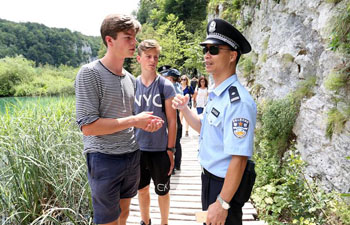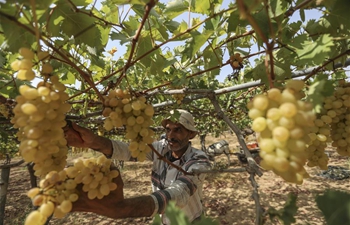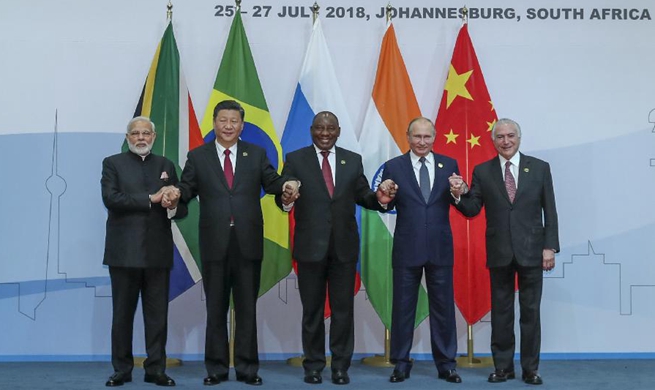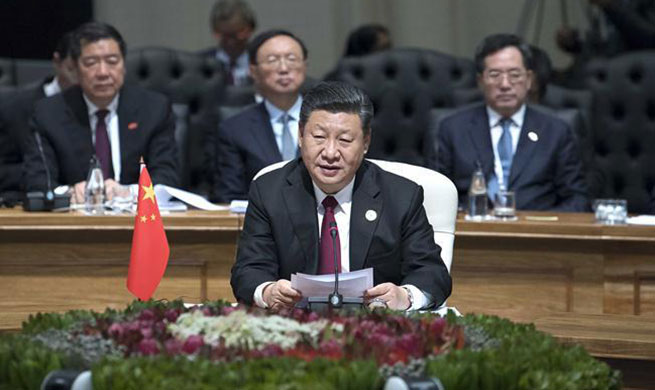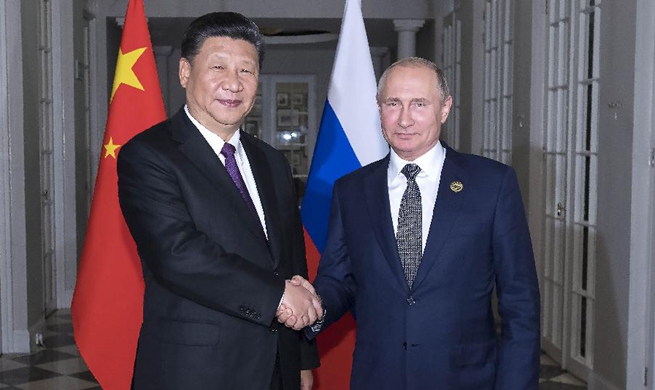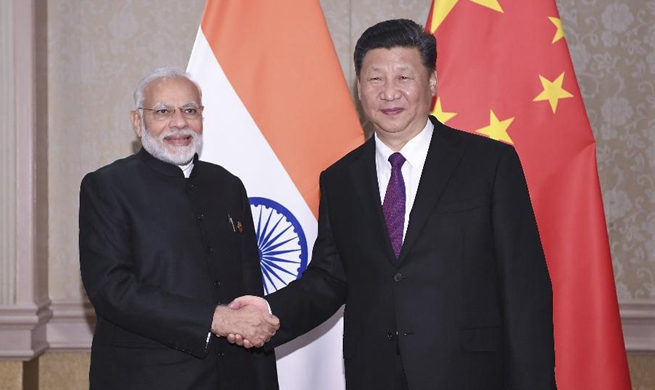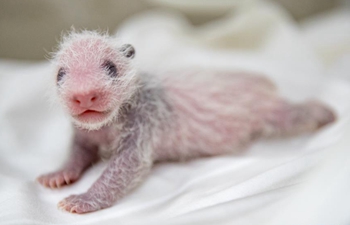XIAMEN, July 27 (Xinhua) --- Listening to the music Radetzky March, Marianna Donner, a Russian ballet teacher, teaches three girls ballet moves at Banlam Grand Theater, in Xiamen, southeast China.
Donner, who started learning ballet as a seven-year-old, has been a dancer for 24 years. In April 2017, she left her hometown Yaroslavl to work as a ballet teacher in Xiamen.
During her year in Xiamen, Donner has taught more than 50 students. "Ballet to Russia is what Beijing Opera is to China," said Donner, "I am honored to act as a cultural ambassador in Xiamen."
Donner said she came to China because the country is quite strange to her and has many opportunities, and she fell in love with Xiamen due to its good weather, nice environment, and friendly people.
Xiamen hosted the BRICS summit in September 2017, featuring cooperation between the world's major emerging markets: Brazil, Russia, India, China, and South Africa.
In her opinion, BRICS has promoted people-to-people exchanges to embrace cultural diversity.
"I am interested in China's Kung Fu tea and I would also like to learn yoga," said Donner, "With closer ties between BRICS countries, we can know each other much better."
Wilma Hugo, a South African student at Xiamen University, has spent more time than usual on the internet looking at news about the BRICS Summit in recent days.
After studying Chinese language teaching at the university for more than two years, she is about to start an internship as a Chinese teacher in her hometown Worcester, a city 1,000 kilometers south of Johannesburg.
Hugo has been interested in Chinese Kung Fu movies since childhood. In 2010, she started to learn Chinese at Stellenbosch University in South Africa.
In 2016, Hugo won a scholarship offered by the Chinese government to study at Xiamen University.
"The more Chinese I learn, the better I get to know China," said Hugo, "The country is developing fast and is more open than ever. In addition, it has developed good bilateral relationships with many African countries."
Hugo was happy to see the BRICS Summit is being held in South Africa.
"The event will help more Chinese learn about Johannesburg just as South Africans learned about Xiamen last year. People from both countries need to know each other better. The event is like an incentive," she said.
In 2016, South Africa's Department of Basic Education announced that they planned to open Chinese classes in 500 primary and high schools in five years.
"There is a Chinese fever in South Africa. However, more Chinese teachers are needed," said Hugo, "I am paying attention to the discussions on educational exchanges at this year's BRICS Summit. I hope we can have more trained Chinese teachers from both countries."
In May this year, Hugo passed the HSK 6, the highest level Chinese language test designed for non-native speakers.
"I was glad that I passed the difficult exam, it makes me more confident to start my career teaching Chinese," she said.
Hugo reads ancient Chinese classics, including The Analects of Confucius.
"The stories teach us many principles on how to conduct ourselves. They are meaningful even today," said Hugo, "I will introduce them to my students in South Africa to show them the charming Chinese culture."





